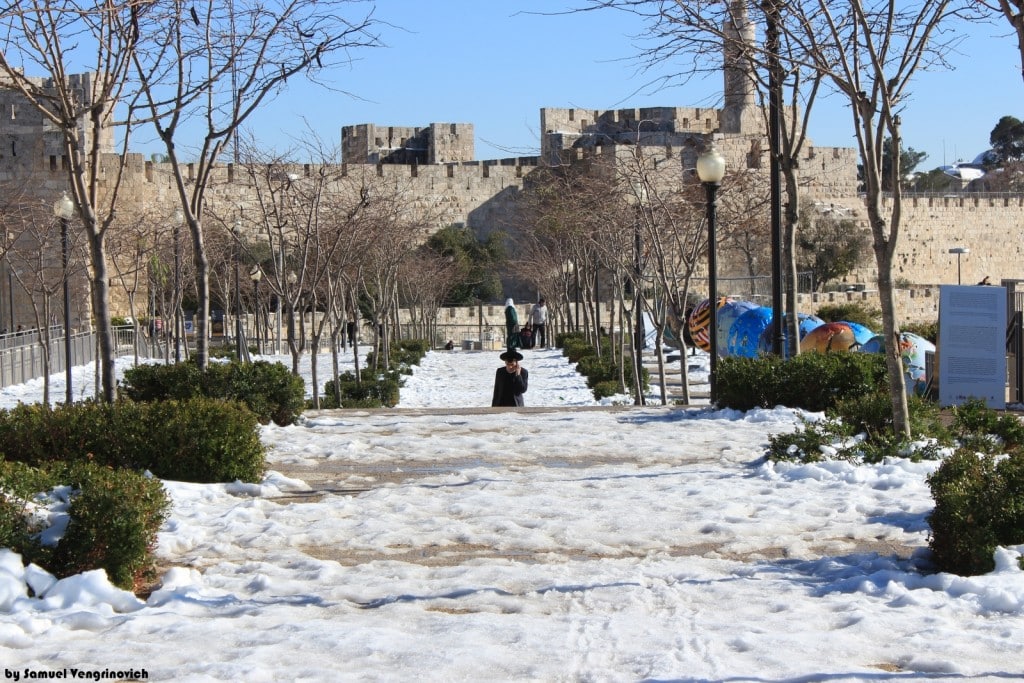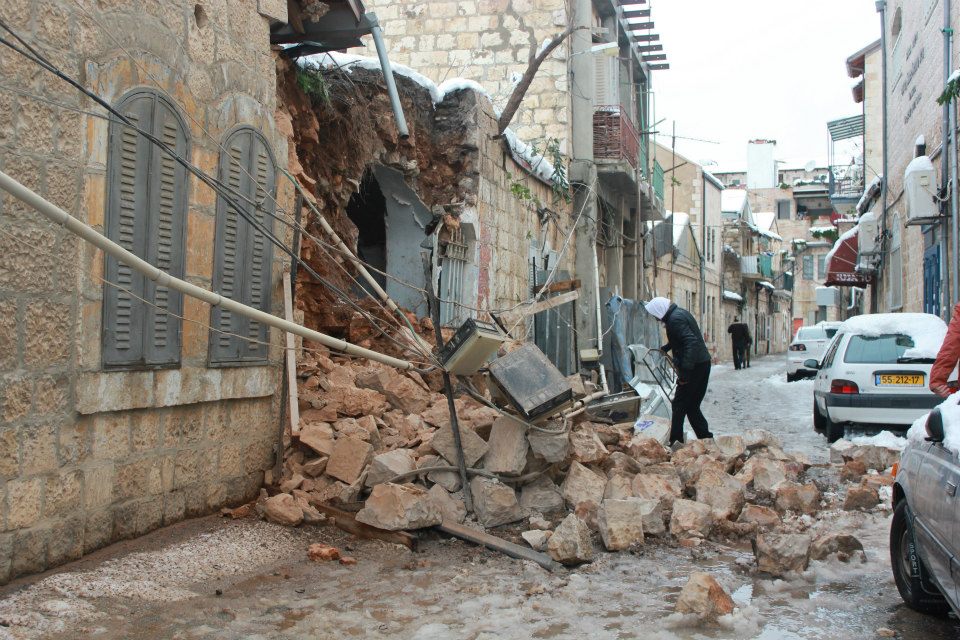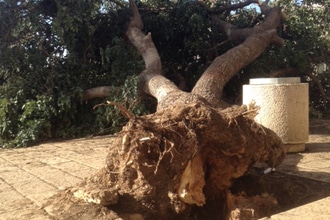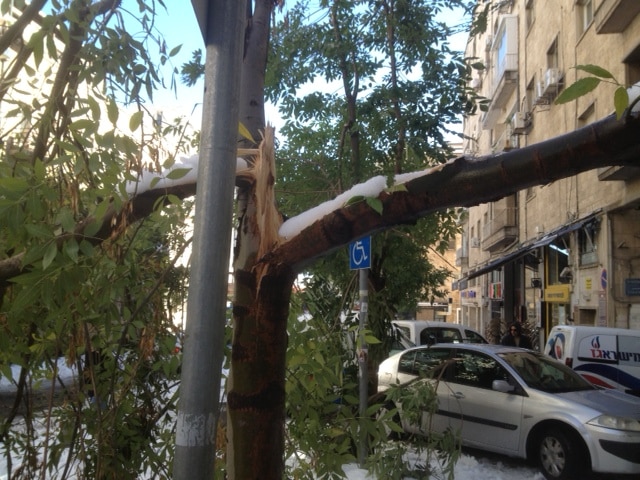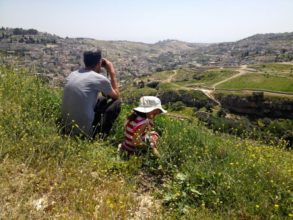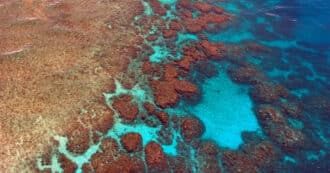By Rabbi Yonatan Neril, Founder and Director, The Interfaith Center for Sustainable Development
What do Israelis, Palestinians, Syrians, and Egyptians all have in common? Frostbite, snowball fights, and living through the region’s most powerful winter storm in 60 years. Winter Storm Alexa endured for three days, dumping a typical month’s worth of heavy rainfall and snow across the region. Several people died, tens of thousands of people fled from floodwaters, and hundreds of thousands lost power. This pattern of extreme weather events aligns with predictions made by the Intergovernmental Panel on Climate Change. Climate change has been linked to increases in the intensity of hurricanes, typhoons, and destructive winter storms like Alexa. This storm is a warning to us – that we need to change our behavior in a major way and to do so soon. Toward the end of this message I will share with you about a particular Initiative that promotes action for environmental sustainability.
Winter Storm Alexa pummeled much of the Eastern Mediterranean. Cairo saw its first snow in 112 years. In Gaza, the heavy precipitation caused massive flooding, forcing 40,000 people to flee their homes. Syrian civil war refugees faced exposure and cold-related illnesses, freezing in the only clothes they carried with them upon fleeing their homes. Jerusalem Mayor Barkat stated that nearly every tree in the city had been damaged in some way. The Bible states that “the human being is a tree of the field,” meaning that the fate of people is bound up with that of the trees. The storm followed an abnormally hot and dry fall. According to the Israeli newspaper, Haaretz, Israel received less than a third of the average rainfall for this time of year, and the Israel Meteorological Service logged a record temperature of 95 degrees Fahrenheit (35 degrees Celsius) in late November .
Dr. Eric Chivian, Founder and Former Director of Harvard University’s Center for Health and the Global Environment, recently wrote a letter to the editor of The New York Times. “In recent years, after other extreme weather events like Typhoon Haiyan, one of the strongest storms ever recorded, scientists are always asked, ‘Has climate change caused this?’ And the answer is generally some variation of ‘perhaps, but we can’t be certain.’The right answer, but the wrong question. In a medical emergency, no physician ever waits for absolute proof of diagnosis before starting treatment, for to do so is to run the risk that the patient will become seriously, and perhaps irreversibly, ill, and may die. The greater the emergency, the more physicians rely on an accumulated body of evidence, on recognized patterns of disease… We must learn from the practice of medicine to recognize the accumulating signs and symptoms of climate change as it unfolds before our eyes, and to act before it is too late.” Every crisis presents an opportunity that we have the choice whether or not to embrace. With this in mind, I am asking you to support The United Planet Faith & Science Initiative (UPFSI), which unites prominent religious and science leaders to speak out on ecological sustainability. Leaders in faith and science, working together, are able to appeal to vast numbers of people to foster awareness and action. Since we launched this campaign on Indiegogo.com thirteen days ago, supporters have already contributed $10,343, which is 57% of our $18,000 campaign goal that we aim to hit by December 31st. The campaign offers ‘perks’ at different levels of giving and shows how funds will be spent. To learn more about the Initiative, see a short video, and make a U.S. tax-deductible donation, click here. Thank you for your support!
Photo credits: ICSD staff, and Samuel Vengrinovich

